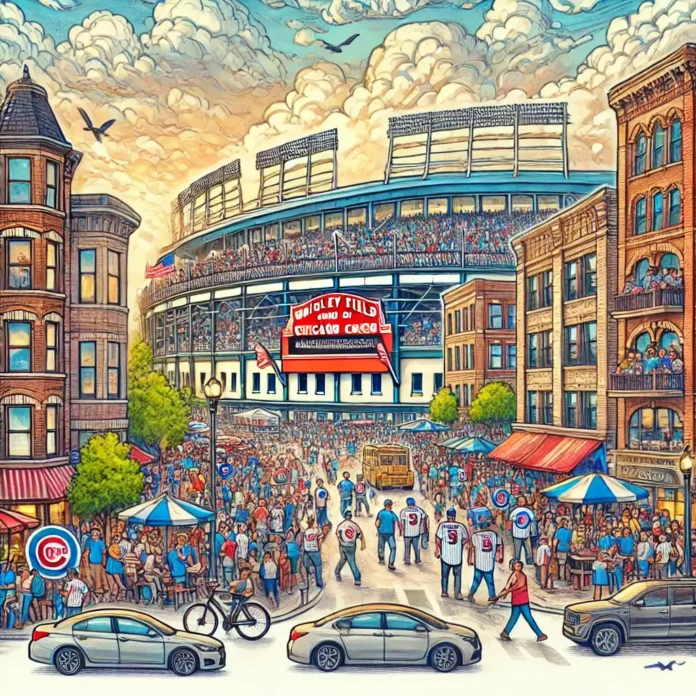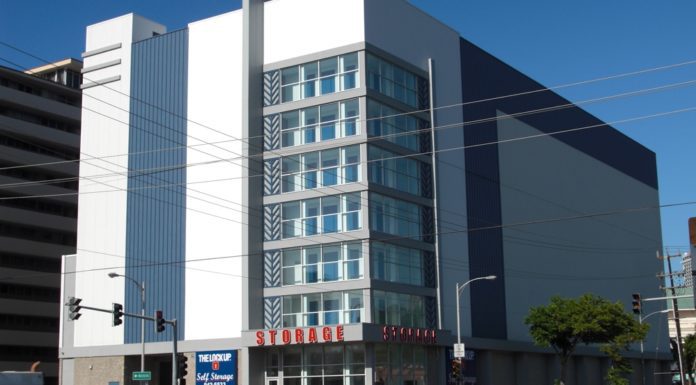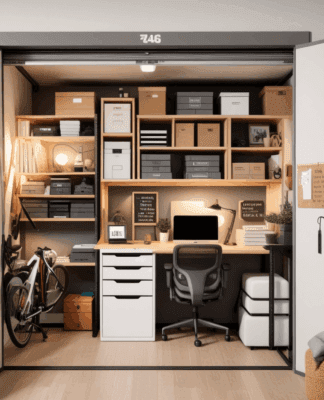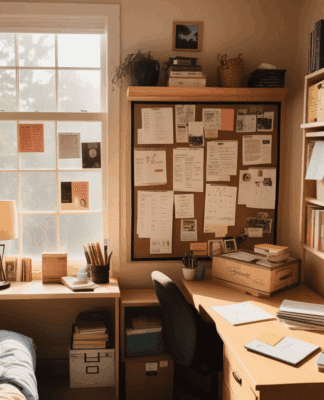Wrigleyville, an iconic neighborhood in Chicago’s Lakeview community, is best known for its deep-rooted sports culture, vibrant nightlife, and proximity to Wrigley Field. Whether you’re a baseball enthusiast, a social butterfly, or someone seeking a lively urban environment, Wrigleyville has much to offer. But like any neighborhood, it comes with its own set of challenges. Here, we’ll explore the pros and cons of Wrigleyville to help you better understand daily life.
Benefits of Living in Chicago’s Wrigleyville Neighborhood
Living in Chicago has many benefits, especially when choosing one of the world-class neighborhoods like Wrigleyville. It’s home to one of the city’s most beloved sports teams, nearby plenty of public transportation, and within proximity to the infamous Lake Michigan. Plus, with the affordable self-storage in Wrigleyville, you can make the most of your apartment without downsizing. So, if you’ve recently been considering a move, consider some of our favorite advantages of living in Wrigleyville.
1. Unparalleled Sports Culture
Wrigleyville is the epicenter of Chicago Cubs fandom. Living here means having Wrigley Field at your doorstep, giving you access to baseball games, concerts, and special events throughout the year. Even if you’re moving from out of state and don’t necessarily call the Cubs your home team (yet), the excitement and activity surrounding these events are contagious. That is, of course, unless you’re a White Sox fan. Still, it’s hard to deny the electricity of game days, and Chicagoans love how vibrant the neighborhood becomes during a home game. Depending on where you live, you may even see the baseball stadium from your rooftop terrace!
2. Exciting Nightlife and Dining Scene
Among the bustle of this diverse neighborhood, you’ll find some top-tier bars and eateries to satisfy any craving. Wrigleyville boasts an incredible selection of entertainment options, from classic sports bars to trendy gastropubs. Popular spots include:
The Cubby Bear — A legendary sports bar with live music.
Murphy’s Bleachers — A go-to bar with rooftop views of Wrigley Field.
Sluggers — A bar featuring batting cages and dueling pianos.
Big Star — A must-visit for tacos and craft cocktails.
Small Cheval — A uniquely delicious place to grab fried bologna sandwiches and hamburgers.
There are also plenty of places to get a deep-dish pizza or Chicago-style hot dog. Simply put, if you love socializing and having entertainment just steps away from your home, Wrigleyville is a great place to be.
3. Walkability and Public Transit Access
Wrigleyville is one of Chicago’s most walkable neighborhoods, with grocery stores, restaurants, coffee shops, and retail stores all within easy reach. Additionally, the CTA Red Line’s Addison station provides a direct route to downtown, making commuting to work or exploring other parts of the city incredibly convenient.
4. Strong Community and Events
One of the biggest pros of moving to Chicago is feeling the community. Well, nothing beats the energy that reverberates in Wrigleyville. Despite its party reputation, Wrigleyville fosters a tight-knit community. Plus, several non-baseball-related events occur every year. Some of our favorites include:
Wrigleyville Summerfest — A family-friendly festival featuring food, music, and entertainment.
Holiday Markets & Ice Skating Rink — Held near Wrigley Field in the winter.
Halloween Bar Crawls & Holiday Light Tours — Seasonal attractions that unite residents.
5. High Property Value and Investment Potential
Wrigleyville real estate maintains substantial value with its prime location and steady demand. Whether you’re looking to rent or buy, property in this area tends to appreciate over time. In fact, the median sale price is already up 18.5% from last year. While it may be a higher cost of living in Chicago, choosing the right neighborhood can give you a pretty good return on your investment.
6. Safety and Well-Lit Streets
Although some areas of Chicago still have a higher average crime rate, Wrigleyville is not one of them. In fact, Wrigleyville has an A+ on Niche and is one of the best neighborhoods to live in Chicago. This is likely due to the increased police presence due to sporting events, but the streets throughout this area are also very well-lit. Plus, the high foot traffic also contributes to a greater sense of safety, particularly around the main entertainment areas. Still, it’s always best to keep your wits about you in cities like Chicago.
7. Proximity to the Lakefront and Parks
While Wrigleyville lacks large green spaces, it’s just a short trip to the Lake Michigan shoreline, where you can access Montrose Beach, Belmont Harbor, and the Lakefront Trail for running, biking, and relaxation. This makes it an excellent location for cooling off during summers with high humidity.
Cons of Living in Wrigleyville
Many disadvantages of living in Wrigleyville are similar to the general cons of living in Chicago. But that’s okay. Life in Chicago isn’t for everyone. Still, those who reside there would say that, despite the hurdles and occasionally crowded streets, Wrigleyville is a good place to live and one of the most vibrant areas in the windy city. However, here are a few minor drawbacks to consider to ensure you know what you’re getting into.
1. High Cost of Living
Living in Wrigleyville isn’t cheap. Rent prices are higher than in many other Chicago neighborhoods due to its proximity to entertainment, transportation, and attractions. A one-bedroom apartment typically ranges from $2,000 to $2,800 per month. The price range for a two-bedroom apartment is around $2,395 and $3,400 per month. The median sale price for those looking to buy is currently around affordable self-storage in Wrigleyville.
You may also find that the daily goods in Wrigleyville are a bit higher than average. This is due to the high demand from both residents and visitors. Many locals opt to shop in nearby areas to save money on groceries and household supplies.
2. Noise and Crowds
For most of the year, residents in Wrigleyville can live comfortably in Chicago, just like any other neighborhood. However, game days can be chaotic. The influx of Cubs fans and tourists means heavy foot traffic, crowded bars, and increased noise levels. Weekend home games are the worst, but some fans still come to Wrigleyville to celebrate and watch away games at one of the many nearby bars. This might be a pro for you if you plan to join them during the celebrations. But if you prefer peace and quiet, Wrigleyville might not be the best fit. Instead, consider Lakeview or Wicker Park.
3. Parking Challenges
Living in Chicago means you will face some challenges if you own a car, but Wrigleyville can be a bit more complicated than other areas. Due to the proximity of Wrigley Field, there are often road closures and a lack of parking spots, which can leave homeowners feeling annoyed. Many residents rely on expensive private parking or opt for street permits, but even then, finding a spot can be frustrating.
While Chicago’s public transportation system is nearby, baseball season can make it overcrowded with tourists and people unfamiliar with how the CTA system works. Still, many people enjoy the area and don’t mind walking or planning ahead.
4. Seasonal Congestion and Disruptions
While baseball season brings energy to the neighborhood, it also leads to congested streets, increased police presence, and occasional road closures. This can make simple errands more time-consuming. As mentioned above, residents may not enjoy the aggravation associated with game day, especially if they own a car. Before you move, we recommend attending an infamous game to see how the neighborhood transforms. Luckily, you won’t have to worry about these things during Chicago winters.
6. Frequent Construction and Development
This disadvantage can apply anywhere throughout Chicago, as new businesses, residential buildings, and infrastructure projects are constantly underway. While this isn’t a huge con to base your move on, you may want to consider the effect of construction mixed with a massive game like the World Series and parking or accessibility. This may be too inconvenient, especially for those looking for long-term stability.
Is Living in Wrigleyville Right for You?
Wrigleyville is perfect for those who thrive in a lively, social atmosphere and enjoy being close to Chicago’s entertainment scene. However, if you prefer a quieter, more residential environment, you may want to consider neighborhoods like Lincoln Park or Lakeview East. The decision to live in Wrigleyville ultimately depends on your lifestyle and wants, but if you move, don’t forget to check out affordable storage options nearby.
Moving into a bustling Chicago neighborhood may mean you don’t have as much storage space as you’re used to. Luckily, with affordable storage in Wrigleyville, you can make the most out of your living space without downsizing.
So, if you’re looking for an affordable storage facility in Wrigleyville and surrounding areas such as Bucktown, Lincoln Park, or River North, contact The Lock Up Self Storage today.



















